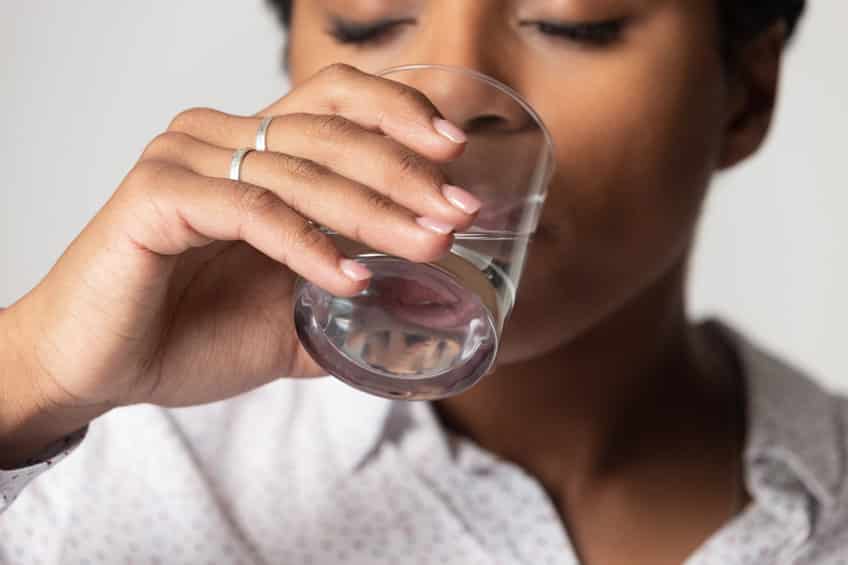By Sean Zucker –
While slugging through the midst of summer, it might be appropriate to revisit that seemingly yearly commitment to drinking more water. Afterall, it’s an understandable response to the increasing heat and dryness. But it’s important to not overdo it. That’s right, it is possible to drink too much water.
“Overhydration is a very real thing,” health coach and sports medicine specialist at Parsley Health Erica Zellner recently told The Cut. It’s fairly rare but overhydration, also known as hyponatremia or water intoxication, can be life-threatening and require immediate action. Generally occurring alongside preexisting conditions such as Type 2 diabetes or congestive heart failure, the harmful effects are not to be ignored.
Also commonly produced in conjunction with drug use, like the extreme thirst ecstasy creates, hyponatremia results in a dangerous misalignment of salt and electrolyte levels.
“Salts, electrolytes and minerals like potassium and magnesium have to be finely regulated by the kidneys and other barrier mechanisms in the body,” Zellner explains. “All of these create a balance so that our muscles can contract and our bodies can send signals from cell to cell from neuron to neuron.”
WebMD adds that consuming too much water can disrupt brain function. When there’s too much water in the cells, especially brain cells, they swell. When the cells in the brain swell, they cause pressure in the brain. This can lead to things like confusion, drowsiness and headaches. If this pressure increases, it can even bring on ailments like hypertension (high blood pressure) and bradycardia (low heart rate).
Additionally, overhydration negatively effects sodium levels, a crucial element that helps keep the balance of fluids in and out of cells. When these levels drop due to water intoxication, fluids can get inside the cells. Cells then swell, creating a risk of seizures, going into a coma, or even death.
Luckily, there are clear signs to look for to avoid overhydration.
Insider notes drinking when not thirsty, clear urine, a lingering headache or nausea are all early signs water intoxication may be on the horizon. These usually occur before the condition is serious or requires medical attention, so it is advised to simply refrain from chugging more H20 when these symptoms are present. Multiple trips to the bathroom during the night is also a red flag.
However, if ignored, feet, hands, or lips can begin to swell. Muscles will start feeling shaky or weak. A constant feeling of fatigue and tiredness followed by confusion or disorientation are much more alarming symptoms. If these surface, immediate hospital treatment is necessary.
Of course, none of this should indicate drinking water is unnecessary. Proper hydration is needed for the body to function properly, as well as increasing energy, reducing fatigue, promoting weight loss, and flushing out toxins. Jennifer Lopez even credits it for her flawless skin and ageless beauty.
And while there is not official daily recommended amount of water, consumption is based on a plethora of factors featuring age, weight, race, socioeconomic status and behavioral characteristics. It’s crucially not to skip the H2O intake. The Centers for Disease Control and Prevention (CDC) lists adequate levels for total water intake from both foods and liquids at 3.7 liters (125 ounces) for men and 2.7 liters (91 ounces) for women.
The verdict is its obviously important to drink water, just don’t be crazy about it.








